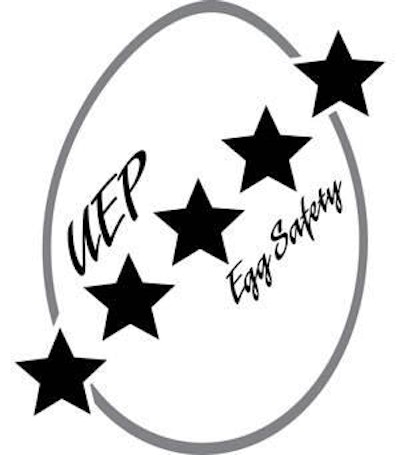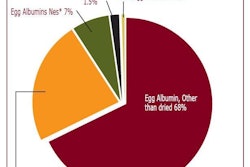
A redesigned 5-Star Egg Safety Program was approved at the United Egg Producers Legislative Board Meeting held in Washington, D.C., in May. Started in 1994, the 5-Star is a voluntary total quality assurance program to provide egg producers with a proactive way of monitoring and controlling Salmonella enteritidis on-farm.
Significant changes were made to the program so that it exceeds the requirements of the Food and Drug Administration’s Egg Safety Rule. Most notably, the 5-Star program now requires that both pullets and layers be vaccinated for SE and that a third party must audit compliance with the program on participating 5-Star farms.
Vaccination against SE
When used along with a comprehensive on-farm food safety program, SE vaccines greatly reduce the risk of organ colonization and fecal shedding as well as horizontal and vertical transmission. Vaccines can also provide an additional level of protection for consumers by producing antibodies in the egg. Studies have shown that these antibodies inhibit the rapid proliferation of Salmonella in eggs as compared to those from unvaccinated flocks.
Vaccinating pullets as soon as possible reduces the risk of early outside Salmonella challenges. Early challenges have the potential to colonize the organs which sets up the potential for fecal shedding back into the environment.
The revised 5-Star program calls for all flocks to be vaccinated with SE vaccines. At minimum, farms that produce eggs for the table egg market must use an attenuated and inactivated vaccination program. Vaccination is not a requirement of FDA’s Egg Safety Rule.
Third-party audits
Certification of an egg farm as a participant in the 5-Star program will now require successful completion of a third-party audit. The audits will be used to verify that the farm has implemented a food safety program that complies with all 5-Star requirements and that the completion of all required activities have been properly recorded and documented.
Many table egg farms are already being audited for compliance with certain animal welfare programs, such as UEP Certified or American Humane Certified, or other quality programs, such as Safe Quality Food program. UEP representatives said at the Legislative Board Meeting that, after training on the revised 5-Star program, auditors may be able to conduct audits of a farm’s compliance to more than one program during a farm visit, thus helping to keep auditing costs as low as possible.
Reducing SE numbers
Since the 1990s when SE emerged as a problem, 15 states developed their own egg quality control programs and UEP developed its 5-Star program. The Pennsylvania Egg Quality Assurance program has served as a model for FDA’s Egg Safety Rule. Krista Eberle, director of food safety programs, UEP, said, “When the Pennsylvania program started they had environmental samples that were running around 15% positive for SE and over the years they have gotten the environmental samples down below 2% positive for SE.” With the implementation of the FDA’s Egg Safety rule nationwide, Eberle said, “The likelihood is that our numbers have gone down and will continue to go down.”
Why change 5-Star now?
Eberle said that the development and implementation of FDA’s Egg Safety Rule and the increasing consumer concern surrounding egg safety are what led UEP to redesign the 5-Star Egg Safety Program to provide egg producers with a comprehensive, dependable food safety program from the farm to the consumer.
“From the beginning, UEP and the egg industry have been supportive of FDA’s Egg Safety Rule,” Eberle said. “We have worked with FDA to make sure that the food safety measures that the industry has developed will be continued.”
FDA is in the process of inspecting nearly 600 egg farms in the U.S. which have 50,000 or more layers. This is the first time that FDA inspectors have inspected the country’s egg farms. Eberle said, “We have heard nothing but positive feed back from our producers on how the FDA inspections have been going.” UEP wants to make sure that the U.S. table egg industry is continuing to make progress in the area of food safety and the changes to the 5-Star program represent a step above FDA requirements.





.jpg?auto=format%2Ccompress&fit=crop&h=167&q=70&w=250)












